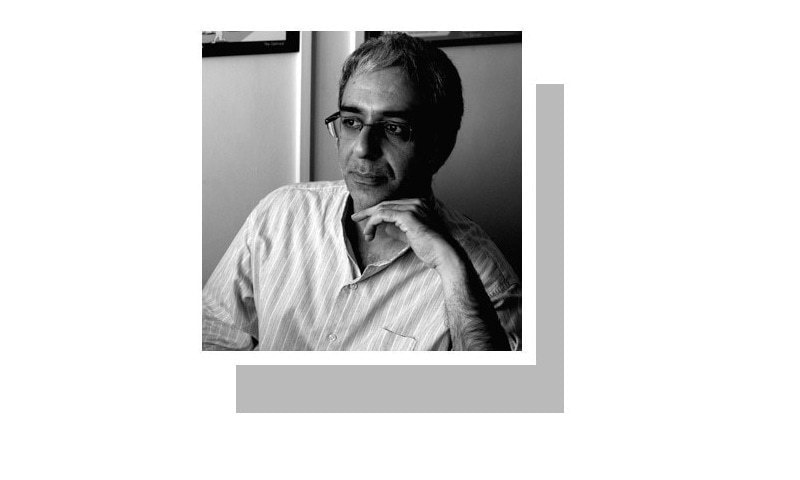
IN Karachi’s Gulshan-i-Maymar are the offices of the Pakistan Institute of Labour Education & Research (Piler). In the garden of the office, there is a wall comprised of exactly 258 bricks. Each brick bears a name: Shah Nawaz, Ghulam Rasool, Nasreen, Hafizullah … one name on one brick for each of the 258 souls lost in the Baldia factory fire of Sept 11, 2012.
One of those names is of Aijaz Ahmed, the only son of Saeeda Khatoon, the face of the Baldia victims’ families’ quest for justice. Widowed when her son was only two years, Saeeda, or ‘Mother Baldia’ as she is known, and Aijaz had only each other. When he grew up and was able to help his mother make ends meet, Aijaz took a job in the cutting department of the Ali Enterprises garment factory in Baldia — a factory that did not technically even exist, since it wasn’t registered as such with the directorate of labour.
Since it didn’t exist in the eyes of the law, the law did not apply to it. Thus, fire safety and workforce safety rules did not apply and the inspections did not take place. It’s doubtful it would have made much difference even if the inspections had been done, given the corrupt and dysfunctional nature of this process. But the result was that on the day of the fire, windows were barred, doors were padlocked. There was no fire escape and the fire alarm was not functioning. The only exits were strewn with merchandise and obstructed and when the fire began and the panic set in, they became deathtraps.
On the day of the fire, windows were barred, doors were padlocked.
On Sept 11, 2012, Aijaz went to work and never returned. Saeeda Khatoon’s great joy in life was cooking for her son, and in these six years she has not cooked a meal at home — because it reminds her of the son she lost.
In the beginning, the Baldia fire affectees were not organised and, thus, were easily given the runaround by various government departments, the police and the factory owners. It was only a year and a half later, after attending meetings and rallies held by different organisations and NGOs that Saeeda Khatoon met Nasir Mansoor, the general secretary of the National Trade Union Federation, who advised her that her voice would only be heard if it was amplified by other voices.
While many of the other affectees were reluctant at first, she convinced them and, thus, the Ali Enterprises Factory Fire Affectees Association was formed. Joined by organisations like Piler, trade unions, NGOs and human rights activists, the association began its long quest for justice and compensation.
Though the case is still ongoing, the judicial process initiated in the Sindh High Court did hold the factory owners and relevant state functionaries accountable for their gross negligence. By 2014, state authorities released the death grants and pensions that had been due.
But even then, the struggle would not have borne the small fruit it did had it not been for the fact that Ali Enterprises supplied 70 per cent of its products to the German company KIK Textilen. Once this came to light, thanks to the lobbying and pressure tactics employed by international labour rights groups, KIK Textilen committed to pay not just emergency relief but also long-term compensation according to international standards. While $1 million were paid out and distributed, getting long-term compensation took another four years.
Even then, bureaucratic pettiness came into play at the last minute as the ministry of overseas Pakistanis threw a spanner in the works, saying that the money could not be transferred until they gave an NOC to that effect. If you’re wondering what this ministry has to do with this, you’re not alone. Thanks to media pressure and outrage, this ‘demand’ was quickly withdrawn. And so, a hard-fought battle between the powerful and the powerless came to a close with a rare victory for the latter.
But worker safety standards and conditions remain abysmal across Pakistan. Despite the loss of 258 souls — and the devastation of 258 families — little progress has been made in regulating the industrial sector. Thousands of factories like Ali Enterprises exist, each of them a potential deathtrap.
As for guilt, the owners of Ali Enterprises remain overseas, seemingly immune to prosecution. Was it an accident or arson? We still do not know as despite a six-year long case — rife with sensational confessions and revelations from the joint investigation team — the Baldia case is nowhere near resolution. Seven of the accused, including former provincial minister Rauf Siddiqui of the MQM are on bail and two accused MQM workers remain in jail.
Meanwhile, six witnesses have died due to natural causes. How long we will have to wait for the resolution of this case is anyone’s guess. For now, we will have to be content with the small measure of justice that has been doled out. As for Saeeda Khatoon, she has pledged to dedicate her life to fight for the cause of workers and the oppressed across Pakistan. To her, they are all like the son she lost.
The writer is a journalist.
Twitter: @zarrarkhuhro
Published in Dawn, September 17th, 2018











































